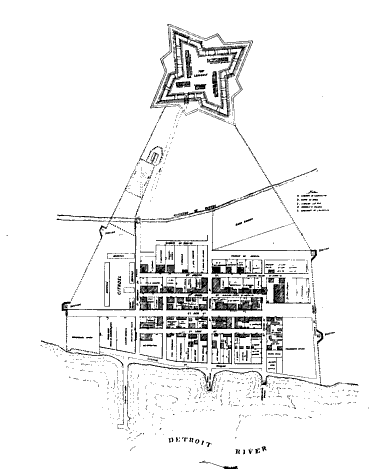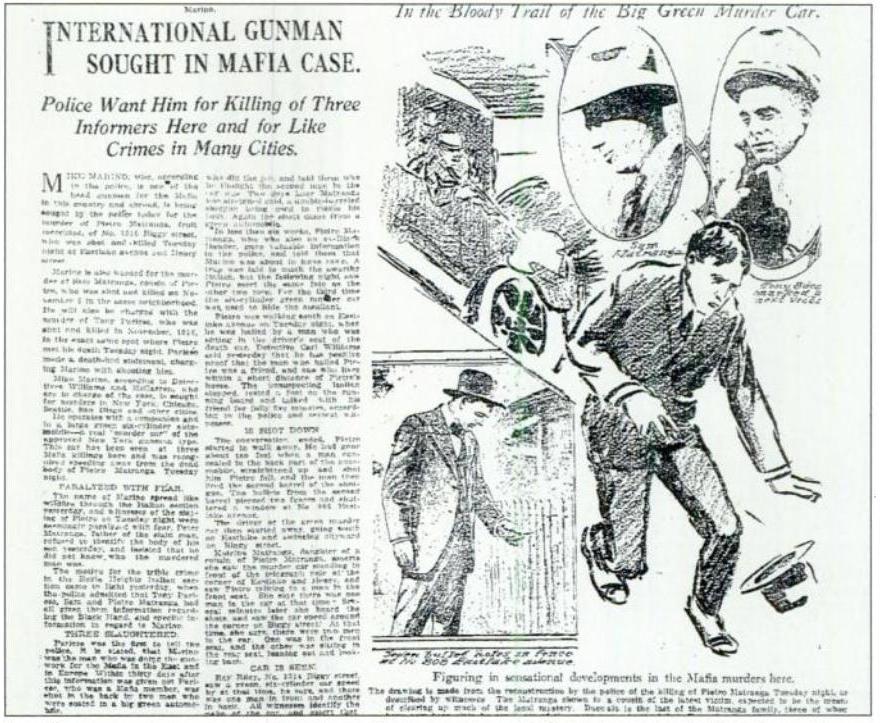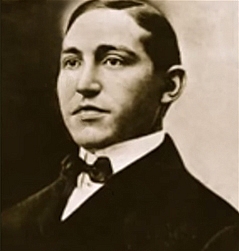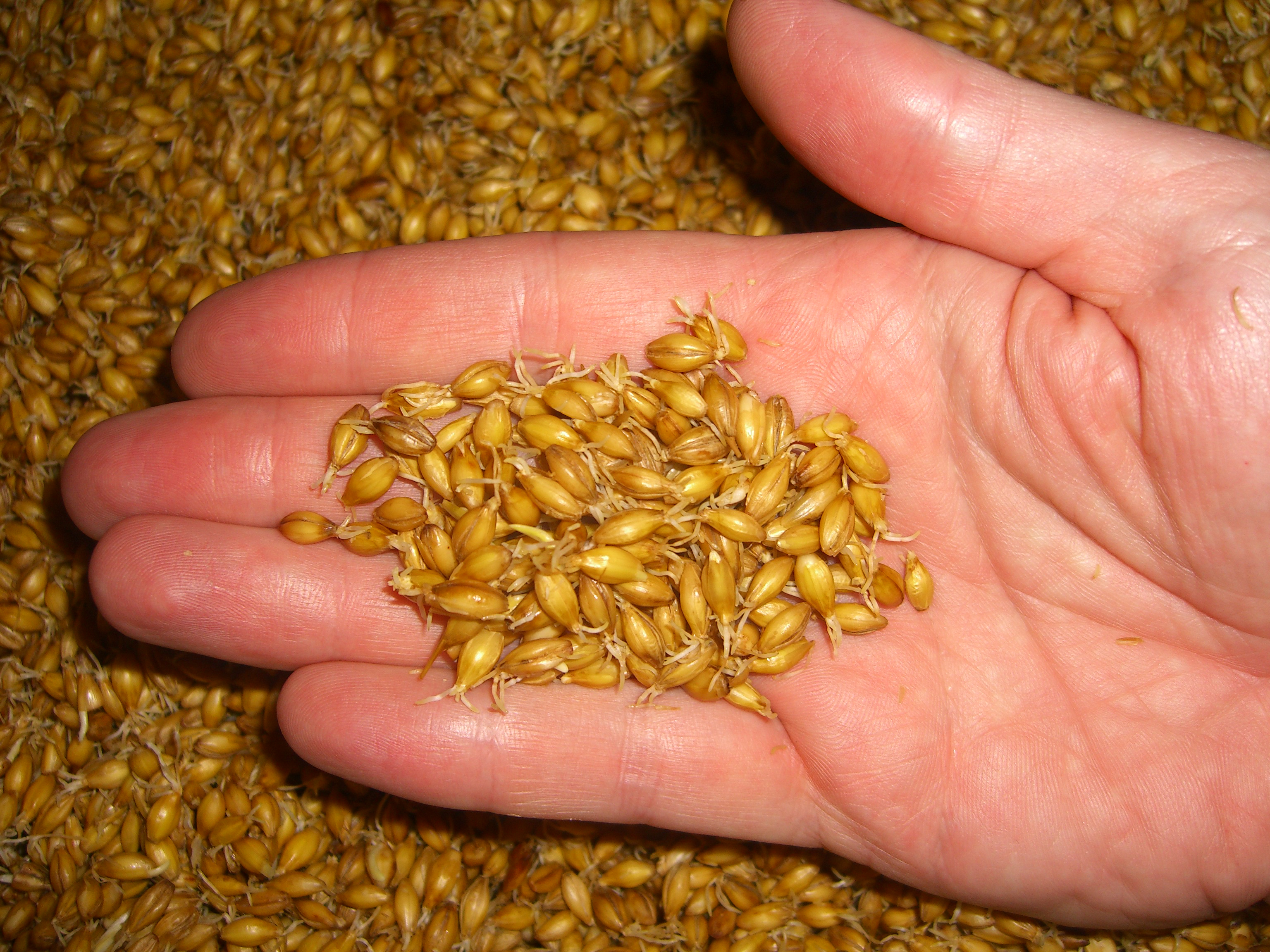|
Black Bill Tocco
William Vito "Black Bill" Tocco (born Guglielmo Vito Tocco; February 12, 1897 – May 28, 1972) was an Italian-American mobster from Grosse Pointe Park, Michigan and a founding member of the Detroit Partnership of '' La Cosa Nostra''. Early life Tocco was born Guglielmo Vito Tocco in Terrasini, Sicily on February 12, 1897. He was one of seven children born to Giacomo Tocco and Nicolina Moceri. In 1912 the Tocco family immigrated to Detroit, Michigan. Tocco became a naturalized citizen after serving in the United States Army during World War I. The company continued producing malt products and did well for around five years, then it was changed to the Pheiffer Products Co. On February 5, 1932, Tocco was arrested for conspiracy to violate the National Prohibition Act. Eight days after the raid, a federal injunction closed Pheiffer Products and Meyer Products for alleged wort production. Not long after this Zerilli and Tocco were barred from participating in the legal beer b ... [...More Info...] [...Related Items...] OR: [Wikipedia] [Google] [Baidu] |
Joseph Zerilli
Joseph Zerilli (born Giuseppe Zerilli; ; December 10, 1897 – October 30, 1977) was an Italian-born gangster who rose to power in the crime family known as the Detroit Partnership, leading from the 1930s through much of the 1970s. He immigrated to the United States from Sicily in 1914 at the age of 17. Early life Zerilli was born on December 10, 1897, in Terrasini, Sicily, to Anthony and Rosalie Zerilli. He immigrated in 1914 at age 17 to the United States, settling in Detroit along with numerous other Italian immigrants, especially many from Sicily. While working as a laborer with the Detroit Gas Company, Zerilli joined the Purple Gang, founded by brothers and Abe Bernstein and his brothers Bugs Bill, Raymond and Isadore, who had moved from New York as youths. Other founders were Harry Fleisher, and Louis Fleisher. After Michigan had prohibited liquor sales a few years before the Prohibition era started nationwide in the United States, these young men developed a street ... [...More Info...] [...Related Items...] OR: [Wikipedia] [Google] [Baidu] |
Detroit
Detroit ( , ; , ) is the largest city in the U.S. state of Michigan. It is also the largest U.S. city on the United States–Canada border, and the seat of government of Wayne County. The City of Detroit had a population of 639,111 at the 2020 census, making it the 27th-most populous city in the United States. The metropolitan area, known as Metro Detroit, is home to 4.3 million people, making it the second-largest in the Midwest after the Chicago metropolitan area, and the 14th-largest in the United States. Regarded as a major cultural center, Detroit is known for its contributions to music, art, architecture and design, in addition to its historical automotive background. ''Time'' named Detroit as one of the fifty World's Greatest Places of 2022 to explore. Detroit is a major port on the Detroit River, one of the four major straits that connect the Great Lakes system to the Saint Lawrence Seaway. The City of Detroit anchors the second-largest regional economy in t ... [...More Info...] [...Related Items...] OR: [Wikipedia] [Google] [Baidu] |
Los Angeles Crime Family
The Los Angeles crime family, also known as the L.A. Mafia or the Southern California crime family, is an Italian-American organized crime syndicate based in Los Angeles as part of the larger Italian-American Mafia. Since its inception in the early 20th century, it has spread throughout Southern California. Like most Mafia families in the United States, the Los Angeles crime family gained power bootlegging alcohol during the Prohibition era. The L.A. family reached its peak strength in the 1940s and early 1950s under Jack Dragna, although the family was never larger than the New York or Chicago families. The Los Angeles crime family itself has been on a gradual decline, with the Chicago Outfit representing them on The Commission since the death of boss Jack Dragna in 1956. The sources for much of the current information on the history of the Los Angeles Cosa Nostra family is the courtroom testimony and the published biographies of Aladena "Jimmy the Weasel" Fratianno, who in th ... [...More Info...] [...Related Items...] OR: [Wikipedia] [Google] [Baidu] |
Profaci Crime Family
The Colombo crime family (, ) is an Italian American Mafia crime family and is the youngest of the "Five Families" that dominate organized crime activities in New York City within the criminal organization known as the American Mafia. It was during Lucky Luciano's organization of the American Mafia after the Castellammarese War, following the assassinations of "Joe the Boss" Masseria and Salvatore Maranzano, that the gang run by Joseph Profaci became recognized as the Profaci crime family. The family traces its roots to a bootlegging gang formed by Profaci in 1928. Profaci would rule his family without interruption or challenge until the late 1950s.Critchley, David. (2009''The origins of organized crime in America: the New York City mafia, 1891-1931'' Taylor & Francis. pp. 160-64. .Robbins, Michael W. and Palitz, Wendy (2001)''Brooklyn: a state of mind'' Workman Publishing. p. 104. The family has been torn by three internal wars. The first war took place during the late 1950s, ... [...More Info...] [...Related Items...] OR: [Wikipedia] [Google] [Baidu] |
American Mafia
The American Mafia, commonly referred to in North America as the Italian American Mafia, the Mafia, or the Mob, is a highly organized Italian American criminal society and organized crime group. The organization is often referred to by its members as Cosa Nostra (, "our thing" or "this thing of ours") and by the American government as La Cosa Nostra (LCN). The organization's name is derived from the original ''Mafia'' or ''Cosa nostra'', the Sicilian Mafia, with "American Mafia" originally referring simply to Mafia (or ''Cosa nostra'') groups from Sicily operating in the United States, as the organization initially emerged as an offshoot of the Sicilian Mafia (known also as ''Cosa nostra'' by its members) formed by Italian immigrants in the United States. However, the organization gradually evolved into a separate entity partially independent of the original Mafia in Sicily, and it eventually encompassed or absorbed other Italian immigrant and Italian-American gangsters and Italia ... [...More Info...] [...Related Items...] OR: [Wikipedia] [Google] [Baidu] |
Salvatore Catalanotte
Salvatore "Sam Sings in the Night" Catalanotte (born Salvatore Catalanotto; 15 February 1893 – 14 February 1930) was an Italian-American mobster. "Sings in the night" is a translation of a close misspelling of his last name (from the Italian "caNta la notte"). Catalanotte immigrated from Sicily to Detroit in 1912 and participated and survived the Giannola and Vitale gang war. After surviving this war, Catalanotte later assumed the highest leadership position within the Detroit mafia. In addition to his mafia dealings, Catalanotte was also recorded to be a baker and a director of the Detroit Italian bakeries. Catalanotte died on February 14, 1930, from pneumonia and his funeral took place in Detroit. Background and Family Birth, Marriage and Children Salvatore (Samuel, Sam) Catalanotte was born in Alcamo, Trapani, Sicily on 15 February 1893. It is unclear whether Catalanotte's full name was Salvatore or Samuel as he has Salvatore written on his immigration and Samuel crossed o ... [...More Info...] [...Related Items...] OR: [Wikipedia] [Google] [Baidu] |
Rum-running
Rum-running or bootlegging is the illegal business of smuggling alcoholic beverages where such transportation is forbidden by law. Smuggling usually takes place to circumvent taxation or prohibition laws within a particular jurisdiction. The term ''rum-running'' is more commonly applied to smuggling over water; ''bootlegging'' is applied to smuggling over land. It is believed that the term ''bootlegging'' originated during the American Civil War, when soldiers would sneak liquor into army camps by concealing pint bottles within their boots or beneath their trouser legs. Also, according to the PBS documentary ''Prohibition'', the term ''bootlegging'' was popularized when thousands of city dwellers sold liquor from flasks they kept in their boot legs all across major cities and rural areas. The term ''rum-running'' was current by 1916, and was used during the Prohibition era in the United States (1920–1933), when ships from Bimini in the western Bahamas transported cheap Caribbea ... [...More Info...] [...Related Items...] OR: [Wikipedia] [Google] [Baidu] |
Giuseppe Zerilli
Joseph Zerilli (born Giuseppe Zerilli; ; December 10, 1897 – October 30, 1977) was an Italian-born gangster who rose to power in the crime family known as the Detroit Partnership, leading from the 1930s through much of the 1970s. He immigrated to the United States from Sicily in 1914 at the age of 17. Early life Zerilli was born on December 10, 1897, in Terrasini, Sicily, to Anthony and Rosalie Zerilli. He immigrated in 1914 at age 17 to the United States, settling in Detroit along with numerous other Italian immigrants, especially many from Sicily. While working as a laborer with the Detroit Gas Company, Zerilli joined the Purple Gang, founded by brothers and Abe Bernstein and his brothers Bugs Bill, Raymond and Isadore, who had moved from New York as youths. Other founders were Harry Fleisher, and Louis Fleisher. After Michigan had prohibited liquor sales a few years before the Prohibition era started nationwide in the United States, these young men developed a street ... [...More Info...] [...Related Items...] OR: [Wikipedia] [Google] [Baidu] |
Michigan Liquor Control Commission
The Michigan Liquor Control Commission is an agency of the U.S. state of Michigan, within the Michigan Department of Licensing and Regulatory Affairs (LARA), responsible for regulating the sale and distribution of liquor in the state. History The Michigan Liquor Control Commission was established when Michigan voters approved a legislatively referred amendment to the Michigan Constitution by way of a statewide ballot measure in November 1932. The state's first liquor control act, which went into effect April 27, created a 17-member commission, one from each Congressional district. On December 15, 1933, the Michigan Legislature abolished the 17-member commission, replacing it with the current five-member commission. By December 15, 1933, ten days after the end of Prohibition in the United States, the commission had opened liquor stores, and made liquor available for sale. By December 30, 1933, the commission had opened the first 7 state liquor stores—in Grand Rapids, Saginaw, ... [...More Info...] [...Related Items...] OR: [Wikipedia] [Google] [Baidu] |
Wort
Wort () is the liquid extracted from the mashing process during the brewing of beer or whisky. Wort contains the sugars, the most important being maltose and maltotriose, that will be fermented by the brewing yeast to produce alcohol. Wort also contains crucial amino acids to provide nitrogen to the yeast as well as more complex proteins contributing to beer head retention and flavour. Production The first step in wort production is to obtain malt, which is made from dried, sprouted cereal grains, including barley. The malt is run through a mill, cracking the husk and exposing the starch inside. The milled grain is then mashed by mixing it with hot water, and then steeped, a process that enables enzymes to convert the starch in the malt into sugars which dissolve in the water. Sometimes the mash is heated at set intervals to alter the enzyme activity. The temperature of the mixture is usually increased to 78 °C (172 °F) for mashout. Lautering is the next s ... [...More Info...] [...Related Items...] OR: [Wikipedia] [Google] [Baidu] |
National Prohibition Act
The National Prohibition Act, known informally as the Volstead Act, was an act of the 66th United States Congress, designed to carry out the intent of the 18th Amendment (ratified January 1919), which established the prohibition of alcoholic drinks. The Anti-Saloon League's Wayne Wheeler conceived and drafted the bill, which was named after Andrew Volstead, Chairman of the House Judiciary Committee, who managed the legislation. Procedure The Eighteenth Amendment to the United States Constitution prohibited the production, sale, and transport of "intoxicating liquors," but it did not define "intoxicating liquors" or provide penalties. It granted both the federal government and the states the power to enforce the ban by "appropriate legislation." A bill to do so was introduced in the United States Congress in 1919. The act was voided by the ratification of the Twenty-first Amendment in 1933. The bill was vetoed by President Woodrow Wilson on October 27, 1919, largely on techn ... [...More Info...] [...Related Items...] OR: [Wikipedia] [Google] [Baidu] |
Malt
Malt is germinated cereal grain that has been dried in a process known as " malting". The grain is made to germinate by soaking in water and is then halted from germinating further by drying with hot air. Malted grain is used to make beer, whisky, malted milk, malt vinegar, confections such as Maltesers and Whoppers, flavored drinks such as Horlicks, Ovaltine, and Milo, and some baked goods, such as malt loaf, bagels, and Rich Tea biscuits. Malted grain that has been ground into a coarse meal is known as "sweet meal". Malting grain develops the enzymes (α-amylase, β-amylase) required for modifying the grains' starches into various types of sugar, including monosaccharide glucose, disaccharide maltose, trisaccharide maltotriose, and higher sugars called maltodextrines. It also develops other enzymes, such as proteases, that break down the proteins in the grain into forms that can be used by yeast. The point at which the malting process is stopped affects the starch-to-enz ... [...More Info...] [...Related Items...] OR: [Wikipedia] [Google] [Baidu] |





